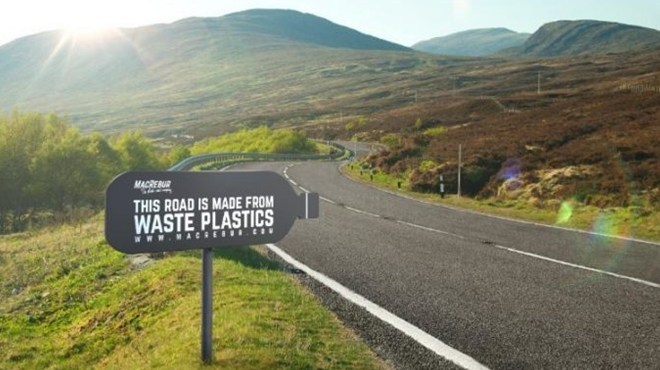Work has officially commenced on the country’s very first plastic road in Eastern Cape’s Kouga Municipality. Installation of stormwater pipes has began and this step is expected to reach completion in the next three months.
The notion of a road being made out of plastic was first rejected in 2016, but finally recieved approval this year.
Speaking to BusinessTech, Horatio Hendricks, who is the Executive Mayor of Kouga Municipality, said the it had entered a partnership with Scottish company MacRebur and South African civil engineering experts to build the country’s first plastic road.
“The backlog in road repairs for our region is estimated to be more than R500-million. While Kouga is strong financially, we simply do not have the rates base to deal with this backlog decisively,” he said. “Poor roads have a devastating impact on communities. It’s not only a danger to motorists it is also bad for the economy as it scares off potential investors and makes it difficult for existing businesses to ply their trade.”
The Scottish company MacRebur – who is heading up the project – has previous experience in building plastic roads. The Uk and many other countries are already benefitting from similar sustainable roads made by the same company. They will receive assistance from Port Elizabeth civil engineering and construction companies, SP Excel and Scribante Construction.
Hendricks added that if the trial is successful, a factory will be built in Kouga to produce the pellets that are used to make plastic roads. The plastic pellets used to create the roads are non-recyclable waste plastic, and were destined to either be incinerated or rest on a landfill.
“By extending part of the bitumen in the mix MacRebur products reduce fossil fuel usage, leading to a reduction in carbon footprint and helping to foster a circular economy,” the MacRebur website reads. “With each km of road laid using our MR products, we use up the equivalent weight of 684,000 bottles or 1.8 million one time use plastic bags. 1 tonne of MacRebur mix contains the equivalent of 80 000 plastic bottles.”
Picture: MacRebur

